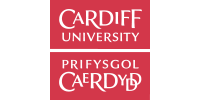Journalism, Media and Communications (Taught) | Master's degree | Media & Communications | On Campus | 1 YEAR | Cardiff University | United Kingdom
The course aims to develop an in-depth understanding of how media work across a variety of social, cultural, economic and political contexts.
We focus on the academic study of journalism, but also offer opportunities for the development of professional skills through optional modules in the second semester and through research.
The course provides insights into how journalism is changing in a globalised context, exploring key debates and issues in journalism studies today. It also provides training in the use of a range of research skills in journalism studies, to support academic scholarship in the field of journalism studies.
You will learn to assess how media are linked to forces of globalisation, political institutions, global responses to war and conflict, and environmental challenges, amongst others.
You will explore the roles of new information and communication technologies, their opportunities and challenges, their democratic potential and their regulation
We will consider issues of citizenship, race, gender, ethnicity and class that are shaping contemporary forms of news media content.
This program offers knowledge and expertise for a career in the journalism, media and communication industries or as a foundation for PhD research.
This program is not designed as a vocational degree and does not provide training in Journalism. You should not consider this degree as a professional qualification towards becoming a journalist.
Distinctive features
The course is designed for those with no previous experience in journalism and for mid-career journalism practitioners wanting a period of reflection to deepen their understanding of journalism practice.
It aims to promote an awareness of the place and importance of journalism in the contemporary world, and in local and global contexts.
It attracts students from all over the world, providing a rich and diverse environment for academic study and critique.
The modules shown are an example of the typical curr




